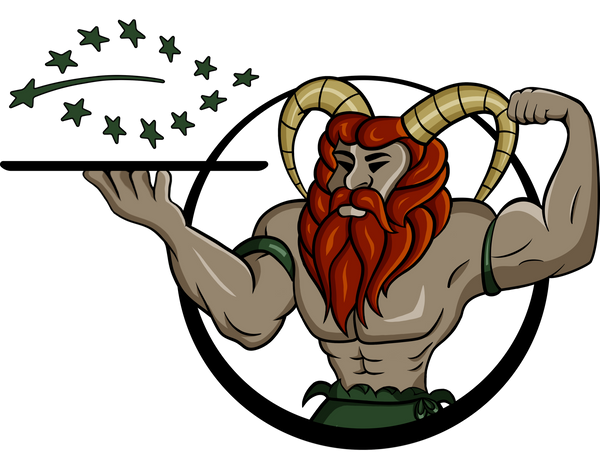
The Importance of Protein: Even When You're NOT Exercising!
Share
The Importance of Protein: Even When You're NOT Exercising!
For many people, protein consumption is often associated with sports and muscle building. But did you know that proteins are also very important for non-athletes? Whether you have an active lifestyle or not, proteins play an essential role in our body.
Proteins are the building blocks of our body and are responsible for many important processes. They not only support muscle building, but also the construction and repair of tissues, the production of hormones and enzymes, and even the maintenance of a healthy immune system.
In addition, proteins play a crucial role in regulating our appetite and promoting a long-lasting feeling of satiety. This can be of great importance for people who want to lose weight or maintain their weight.
So, even if you’re not a sports fanatic, it’s important to get enough protein. Whether it’s lean meats, dairy, legumes or nuts, there are plenty of options to meet your daily protein needs.
Find out in this article why protein is crucial to your overall health, even if exercise isn't on your daily agenda.
Functions of proteins in the body
Proteins are essential molecules that perform a wide range of functions in our body. They serve as building blocks for tissues, help transport substances through the body, regulate enzymatic reactions, and play a role in communication between cells. In short, proteins are vital to the functioning of our body.
One of the most important functions of proteins is to build and maintain our muscles. When we perform physical activities, our muscles are stressed and damaged. Proteins help to repair and strengthen these muscles. But proteins are not only important for athletes. They also play a crucial role in repairing and regenerating tissues, such as skin, bones and organs, in people of all ages.
In addition, proteins act as enzymes, which enable chemical reactions in our bodies. Enzymes accelerate the speed of these reactions, which is essential for efficient metabolism and the functioning of our bodies. Proteins are also involved in the transport of molecules throughout the body, such as oxygen and nutrients, and play a role in regulating our immune system.
In short, proteins are essential for the proper functioning of our body, regardless of whether we exercise or not.
Importance of proteins, especially for the elderly
Protein plays an even more important role for older adults. As we age, muscle mass naturally decreases, which can lead to weakness and loss of mobility. Adequate protein intake is crucial to prevent muscle breakdown and maintain muscle mass, especially in older adults.
In addition, protein consumption helps maintain a healthy immune system, which is especially important for the elderly. A strong immune system helps the body better fight infections and diseases.
In addition, protein also plays a role in maintaining healthy bone mass, which is important for reducing the risk of osteoporosis and fractures. In short, protein is crucial for maintaining the health and well-being of older adults.
The role of proteins in metabolism
Proteins play an important role in our metabolism. Our body needs energy to function and proteins can also be used as an energy source. When we do not get enough carbohydrates or fats, our body can break down proteins and use them as fuel.
In addition, our bodies use more energy to break down and digest proteins than they do for fats and carbohydrates. This is called the thermic effect of food and it can contribute to an increased metabolism and the burning of calories.
In addition, proteins help regulate blood sugar levels. They slow the absorption of glucose into the blood, which helps prevent spikes and dips in blood sugar levels. This is especially important for people with diabetes.
In short, proteins play an essential role in our metabolism and can contribute to increased energy expenditure and stable blood sugar levels.
What are proteins and why are they important?
Proteins are macromolecules that consist of amino acids. There are a total of 20 different amino acids, some of which can be produced by our body and others must be obtained through food. These amino acids are essential for many functions in our body as building blocks of proteins.
Proteins are responsible for building and repairing tissues, including muscles, skin, bones, and organs. They also contribute to the production of hormones, enzymes, and antibodies that protect our bodies from disease.
In addition, proteins are involved in the transport of molecules throughout the body, such as oxygen and nutrients. They also play a role in regulating our metabolism and maintaining a healthy immune system.
In short, proteins are vital for the proper functioning of our body and play a role in numerous processes and functions.
How much protein do you need?
The amount of protein you need depends on several factors, such as age, gender, weight, physical activity and health status. In general, it is recommended that adults consume between 1.6 and 2.2 grams of protein per kilogram of body weight. This means that someone weighing 70 kilograms should consume between 112 and 154 grams of protein per day.
Proteins and satiety
Protein plays an important role in promoting a long-lasting feeling of satiety. This means that when you consume enough protein, you feel fuller for longer and are less likely to get hungry.
This is because protein stimulates the release of the hormone responsible for regulating appetite, called leptin. Leptin sends signals to your brain that you are full and do not need to eat anymore.
In addition, proteins also influence the release of other hormones involved in regulating appetite, such as ghrelin. Ghrelin is a hormone that stimulates feelings of hunger. Protein can reduce the release of ghrelin, which makes you feel less hungry.
Therefore, consuming enough protein can help reduce overeating and snacking between meals, which can contribute to weight management.
That's why protein-rich food is perfect for when you want to lose weight! See the paragraph below.
Proteins and weight loss
Protein plays an important role in weight loss. First, consuming adequate protein helps maintain muscle mass while losing weight. This is important because muscle burns more calories than fat tissue, even at rest.
In addition, proteins promote a feeling of fullness and reduce hunger. This can help you consume fewer calories and help control your appetite.
Protein can also help increase metabolism. The thermic effect of food, mentioned earlier, refers to the increased energy expenditure required to break down and digest protein. This can contribute to increased calorie burning and weight loss.
Additionally, eating protein can help regulate blood sugar levels, which can help prevent blood sugar spikes that can lead to hunger and overeating.
In short, protein plays an important role in weight loss and can help maintain muscle mass, reduce appetite, and increase metabolism.
The importance of proteins for a vital body
Proteins are essential for maintaining a healthy body. They play a crucial role in building, maintaining and repairing tissues, including muscles, skin, bones and organs.
In addition, proteins are involved in many processes in our body, such as the production of hormones, enzymes and antibodies. They also play a role in the transport of substances through the body and regulate our immune system.
Adequate protein intake is especially important for aging people, as it can help maintain muscle mass, strengthen the immune system, and reduce the risk of bone loss.
In short, proteins are vital for a healthy and vital body, regardless of whether you exercise or not.
Tips to get enough protein without eating meat
There are plenty of options to get enough protein without eating meat. Here are some tips:
- Plant-based protein sources: Legumes, such as beans, lentils and chickpeas, are excellent plant-based protein sources. They can be used in soups, stews, salads and as a base for veggie burgers. In addition, tofu, tempeh and seitan are good meat substitutes that are rich in protein.
- Nuts and Seeds: Almonds, walnuts, chia seeds, and hemp seeds are all high in protein. They can be added to smoothies, salads, cereals, or eaten as a snack.
- Dairy Products: Dairy products such as milk, yogurt, and cheese are good sources of protein. Opt for low-fat or nonfat options to reduce the fat content.
- Eggs: Eggs are an excellent source of protein. They can be boiled, fried, poached or made into omelets.
- Quinoa: Quinoa is a pseudocereal that is rich in protein. It can be used as a base for salads, side dishes or as a substitute for rice.
- Plant-based milk: Plant-based milks, such as almond, soy, or oat milk, can be a good source of protein. Choose unsweetened options to reduce added sugar.
- Plant-based protein powder: The protein powder from Faunus Nutrition is perfect for supplementing your daily protein intake. This is an ideal solution for elderly people with little appetite, or someone with little time.
Our protein powder is 100% organic, free from unnecessary artificial additives and fermented, which contributes to your gut health.
It is important to eat a varied and balanced diet to ensure you get all the essential amino acids. Combine different protein sources to ensure you get all the nutrients you need.
Conclusion: Why Proteins Are Essential for a Healthy Diet
Proteins play a vital role in our bodies, regardless of whether we exercise or not. They are responsible for many functions, including building and repairing tissues, regulating hormones and enzymes, transporting molecules, and maintaining a healthy immune system.
Adequate protein intake is especially important for older adults, as it can help maintain muscle mass, strengthen the immune system, and reduce the risk of bone loss.
Proteins also play a role in regulating appetite, promoting long-term feelings of fullness and supporting weight loss.
There are plenty of options for getting enough protein without eating meat, such as legumes, nuts, seeds, dairy, eggs, and quinoa.
In short, protein is essential to a healthy diet and it's important to make sure you get enough protein whether or not you exercise regularly.
